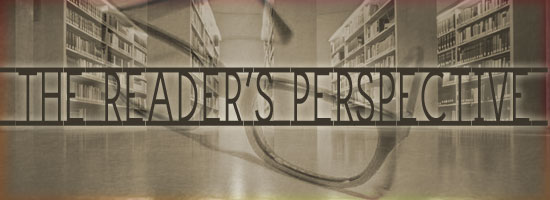The Difficulty of Reviewing
By Jesse Freedman
Perhaps the most difficult part of reviewing books is the process by which the reviewer confronts what constitutes an honest assessment. Setting aside for a moment situations in which the reviewer has a personal connection with the author or an inherent opposition to the opinions expressed in a book, it remains a significant challenge to produce a review that is true to the reviewer’s sense for what he has read.
The reasons for this are several, but can be reduced, I think, to a few. First, it is an unavoidable reality of reviewing that an essay which pans a book is less likely to appear in print than one highlighting its merits. Name a publication that will run an overwhelmingly negative review. There aren’t many – and that’s because publications, even those that are well funded, are subject to the same set of realities facing the reviewer: namely that if reviews are too negative, too honest, readers are unlikely to purchase the book being evaluated.
This, by extension, calls into question the objective of publications committed to reviews: is their aim to sell books, or to pass judgment? And further: are publications which include negative reviews those which might be considered the most responsible in the execution of their duties to assess? But to return for a moment to the reviewer: if his review is too negative, or too critical, he runs the risk of having his review denied. And yet, if his review does not present a responsible treatment of the book he’s read, it runs the risk of becoming dishonest, disingenuous. Here is the awkward, if unavoidable, dynamic facing the reviewer: he must be honest in his assessment, but not too honest, for his integrity risks the production of a review that is unlikely to be published. This situation is sticky to say the least.
Of course the publication, too, is intrinsically involved in this dynamic: after all, what editor would assign a book to be reviewed, wonders the reader, that has produced such a negative response in the reviewer? Here, the awkwardness is quietly compounded: for if a reader cannot trust the editor of a publication to assign books that are worthy of review, can that same reader trust the publication at all?
The inverse of what I’ve outlined is a reality as well: because in his desire to see his work appear, the reviewer runs the risk of producing a review that is overwhelmingly – even deceptively – enthusiastic. There’s no way around the fact that this enthusiasm functions as a veiled attempt on the part of the reviewer to challenge the author to a sort of intellectual duel, but, at the final moment, admit defeat. In this case, generosity calls into question the reviewer’s judgment, primarily because it does a disservice to his readership.
How generous, then, or positive, should the reviewer be? The answer is that he must fight the temptation to construct pretty sentences when the book that he’s evaluating does not warrant them. True, the reviewer’s primary aim – whether he will admit it or not – is to see his own work in print. But to pursue this goal to such a degree that his evaluation assumes an unwarranted benevolence does, as a I suggest, a disservice to readers of the publication. After all, readers of reviews are part of a microscopic demographic – one willing to read before taking on the actual challenge of reading. And so these privileged few deserve an honest assessment, not one in which the reviewer elevates the book in order to see his own work featured on the front page of the publication. That process, in a sense, is a tragedy built on a shadowy form of self-interest and deception. (To witness this phenomenon, turn over a hardcover book and survey the praise. Do they really mean it?)
What are the criteria by which the reviewer must evaluate a work?
The answer is complex, and warrants – however ironically – a book of its own. Let me, nevertheless, offer a simple answer, one that has guided me in my own reviewing. Whether fiction, history, poetry, or essays, a book must be evaluated according to two primary measures: first, whether it succeeds in establishing its own internal logic; and second, whether that logic generates meaningful discussion after it has been finished (that is: whether the book fosters a subsequent universe of thought).
I have evaluated books which occupy a neat, tidy space, but which do little to cultivate subsequent discussion. (These books fail the reviewer’s test because they speak only to themselves.) And then I have reviewed books that struggle to establish an internal logic – whether because they are poorly written or hastily conceived – but which are successful in their ability to stimulate secondary discourse. These books are uniquely difficult to evaluate because while they spark discussion, they fail to hold themselves to the standards by which successful writing is reasonably, and necessarily, judged.
Ultimately, the books worthy of praise are those that satisfy the measures I have identified. It might be argued, of course, that the application of these criteria differs from one reviewer to the next. But this, I think, is to misunderstand them. Reviewers, it’s true, have different expectations of style and syntax; and they differ, too, in their perception of what sort of writing engenders meaningful chatter. The key, however, is that a work satisfy both hurdles: that it weave a vibrant and cohesive internal tapestry, while speaking to a wider world, one willing to seriously engage its existence.
These are the types of books that attract my attention, and that I feel comfortable awarding genuine praise – praise that I might consider honest.

